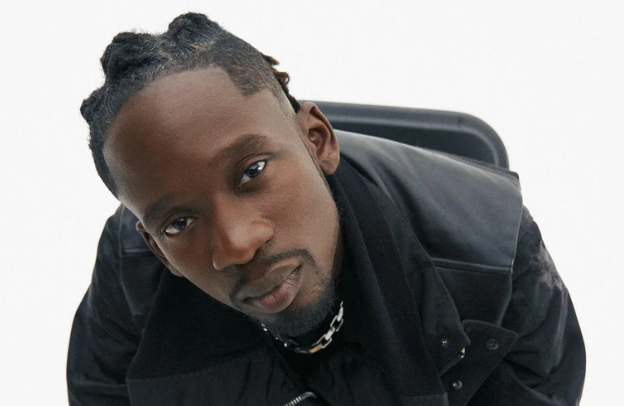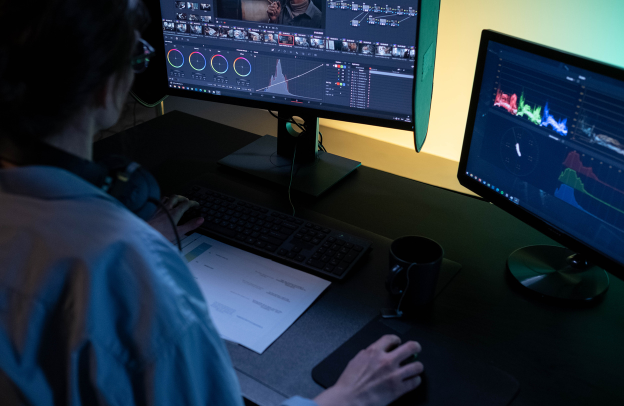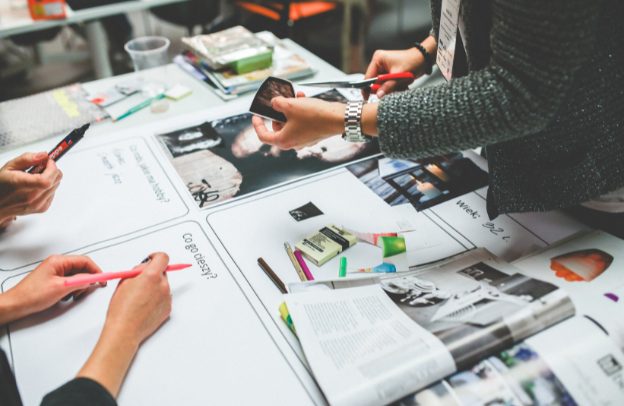Awakened With New Beats: How Mr Eazi And Other African Artists Are Redefining The Creative Economy

As an African diaspora creative entrepreneur, you understand that African music and art are no longer just products of the continent—they are forces driving change, breaking cultural boundaries, and redefining the global creative economy. Imagine a world where African music flows seamlessly into African art, where each album track has its visual counterpart.
Want to learn more about storytelling? Start by downloading the first chapter of The Storytelling Mastery.
We are talking of music, painting, sculpture, and upcycling converging in a celebration of African identity. This is the future that Nigerian Afrobeats star Mr Eazi is helping to shape with his latest project, The Evil Genius.
But Who is Mr Eazi?
Born Oluwatosin Ajibade, Mr Eazi is a Nigerian musician, entrepreneur, and pioneer in the global Afrobeats movement, best known for creating a unique sound he calls Banku Music, a fusion of Nigerian and Ghanaian musical influences.
Rising to prominence in the late 2010s, Mr Eazi has not only made a mark with hit songs like “Leg Over” and “Skin Tight” but also as a visionary shaping the African music industry.
In a CNN interview, Mr Eazi said “Many artists don’t have the same accessibility to important data that music distributors have about their music.
They don’t necessarily tell you the exact way they are marketing your music or give artists access to data they can use to maximize revenue for their content.” He added “This information imbalance means artists are largely oblivious of much of the audience data farmed from their content,” he told CNN.
See also Purpose-Driven Entrepreneurship: Aligning Your Story and Business with Your Core Values
In 2018, Mr Eazi founded emPawa Africa, an initiative to empower young African artists through funding, mentorship, and exposure, positioning him as a leader in nurturing Africa’s creative economy.
His latest project, The Evil Genius, expands his influence beyond music, incorporating visual arts and collaboration with artists across Africa. He created a multi-dimensional storytelling experience that redefines African identity on the world stage.
In an industry increasingly hungry for authenticity, African creators—armed with Afrobeats, amapiano, and experimental fusions—are making bold moves to transform the global entertainment landscape.
You may be asking, how can I, too, harness the momentum of this movement, to uplift African culture and expand creative potential? Mr Eazi’s work serves as a remarkable blueprint for cross-medium storytelling and cultural pride, leading the way to build Africa’s brand globally.
The Awakening: How a Painting Sparked a Vision Beyond Music
For Mr Eazi, this project began with a simple encounter in a hotel lobby in Benin. There, he was struck by a painting by the Benin-based artist Patricorel, showing two skeletons sitting side by side on a bench. “For me, it was so striking because as soon as I saw it, I just knew it was about love… (and the idea of) ‘til death do us part,” Eazi told CNN in an interview.
It was this intimate moment of recognition, this reminder of art’s emotional depth, that ignited a desire to go beyond music. This moment became the foundation of The Evil Genius, which combines sound with visuals to create a multi-dimensional experience of African life and emotions.
See also Davido’s Chioma And The Tribal Bigots Of Edo By Austin Isikhuemen
Each song on the 16-track album has its own piece of visual art, crafted by artists from across Africa—from Nigeria and Ghana to Senegal and Kenya.
With this project, Eazi sought to capture an emotional range that is difficult to fully express in music alone. His mission is to take listeners into different realms of African storytelling.
The profound impact of storytelling is undeniable, and that’s the essence of The Storytelling Mastery, a five-part book series that guides you through the transformative power of storytelling. At AClasses Academy, we champion this vital art form and delve deep into its nuances on The Obehi Podcast.
African Artists on a Global Mission: The Pan-African Scope of The Evil Genius
With African art and entertainment industries collectively worth several billions of dollars, Africa’s creative sector is making a powerful impact on the global stage. These numbers reflect the continent’s increasingly influential role in film, music, art, and dance.
The visibility of African creative industries has increased exponentially with Afrobeats stars like Burna Boy, Wizkid, and Mr Eazi himself reaching worldwide audiences and demonstrating Africa’s artistic diversity and innovation.
Mr Eazi, credited with creating Banku Music—a unique fusion of Nigerian and Ghanaian sounds—has always championed cultural cross-pollination.
However, The Evil Genius takes this vision to an unprecedented level by blending his music with carefully chosen visual artworks.
Described as a “pan-African project,” The Evil Genius draws not only on musical talent across the continent but also on visual arts from diverse African regions.
This range is showcased through 13 artists commissioned from Zimbabwe, South Africa, Benin, Nigeria, Togo, Cameroon, Senegal, and Kenya. These pieces will be displayed in key art and music hubs—London, New York, Accra, and Lagos—ensuring that the project reaches African and global audiences alike. The intention is clear:
- To tell a cohesive African story that is both local and global,
- Intimate and universal,
- Deeply personal and culturally rich.
Art as Narrative: A Visual Companion to Sound
Imagine an album where each song isn’t just heard but seen. Tammy Sinclair, a Nigerian artist who created the visual for The Evil Genius’s opening track, “OLÚWA JỌ̀,” describes her process as one of immersion.
“I listened to (the song) over and over for a couple of days,” Sinclair shared, explaining how she took inspiration from Mr Eazi’s words and emotions. The final artwork is an embroidered image of a man looking to the sky, bathed in light, a representation of vulnerability, strength, and hope.
This piece reflects the song’s theme—a personal prayer for divine support, rendered in Yoruba and translated visually in an almost visceral way.
This approach underscores the role of art as a powerful narrative tool, a medium for capturing emotions and stories that words alone cannot.
You, as a creative entrepreneur, can appreciate how this interplay between sound and visuals offers a new way of storytelling, one that engages audiences on multiple levels and deepens emotional resonance.
See also Measuring Storytelling Success: Tools and Metrics for Gauging the Impact of Your Story
It’s a method that demonstrates the immense storytelling potential within Africa’s creative industry, a sector where artists are pioneering new forms of cross-medium expression.
Sustainable Creativity: Turning Waste into Art with a Powerful Message
One of the most compelling artworks accompanying The Evil Genius is by Togolese artist, Foli Kossi Gérard Tete, known as Tesprit. His sculpture, made from discarded flip-flop soles sourced from Togo’s capital city, Lomé, was inspired by Mr Eazi’s song “Mandela,” a tribute to fatherhood and sacrifice.
The lyrics reflect the relationship between Mr Eazi and his father, who made sacrifices to support him and guide him through life’s challenges. Tesprit’s upcycled sculpture of a father and son captures that essence beautifully, symbolizing protection, faith, and hope.
For African creatives, Tesprit’s work is a testament to the sustainability of African creativity and ingenuity. With Africa facing mounting environmental challenges, artists are increasingly embracing eco-conscious materials to create meaningful, resonant art.
It’s an approach that not only enriches the art but also provides a unique African narrative about resilience and resourcefulness.
When it comes to resilience, this word has been a constant companion since 2013 when I launched our research project, “The Journey,” exploring the presence of Africans in northern Italy.
See also Building a Magnetic Brand: Storytelling Techniques to Attract and Keep Your Ideal Clients
To this day, as I continue to engage with Africans from various diaspora communities, the importance of resilience is clear. Listening to their stories, it’s evident that resilience is essential. And leveraging our creative entrepreneurship to express this resilience is not just advantageous, but vital for our growth and unity as a people.
The Power of Art as a Tool for Cultural and Economic Influence
The global appreciation for African creative expression has led to greater economic opportunities for artists across the continent.
A study by Statista reveals that the entertainment market in Africa is on the brink of substantial growth. In 2022, the market was projected to achieve a total revenue of US$62.67 million.
This positive trajectory is expected to persist, with an annual growth rate (CAGR 2022-2027) of 12.07%, signaling a booming future for the industry.
This upward trend, if you have been following this article to this point, underscores the vibrant potential of Africa’s entertainment sector, driven by increasing digital connectivity, a youthful population, and burgeoning creative talents.
Mr Eazi describes art as an “opportunity to discover people without a pre-bias… it’s exerting soft power.” This speaks to the capacity of African art to shift perceptions, dismantle biases, and provide a truer, more nuanced portrayal of Africa to the world.
Consider the economic impact of this shift: African art and music have become export products, creating new revenue streams and showcasing Africa’s talent to audiences worldwide. But beyond economics, there’s cultural power here too.
See also Your 1000 True Fans: A Path to Success for Creative Entrepreneurs in the African Diaspora
By taking control of their narratives, African artists are reclaiming and redefining African identity in the global creative economy, ensuring that their voices are authentic, powerful, and free from outside bias.
Building an African Creative Ecosystem: Collaboration Across Mediums
For Mr Eazi, creating The Evil Genius wasn’t just about combining music and art but about forging a new kind of African creative ecosystem. “African music should be in African film and African art with African music,” he said in his interview.
This synergy holds immense potential for entrepreneurs like you, who seek to foster collaboration and amplify African creativity on a global stage. Imagine African films featuring African music, complete with visual art by African artists—a full-spectrum experience of African culture that can be exported to the world.
This vision of a connected, interdependent African creative industry isn’t just a dream; it’s a practical model for building a resilient, self-sustaining economy.
Already, African musicians, filmmakers, visual artists, and fashion designers are forming collaborations that reach beyond borders.
That was also the center stage in our recent conversation with Dr. Ava Eagle Brown, founder of the Black River Film Festival in Jamaica, who graced The Obehi Podcast. She passionately discussed her vision to increase partnerships between African artists and Nollywood filmmakers.
The episode delved into the value of fostering connections among African and diaspora businesses, offering listeners a wealth of insights and inspiration.
If you look around, you will see that more and more Africans are uniting around a shared mission to celebrate, elevate, and preserve their culture in all its richness and diversity.
By being part of this ecosystem, you are contributing to a cultural renaissance that empowers Africa to take pride in its own narrative and project it globally, without compromise.
See also How To Profit From Diaspora Stories and Storytelling: tips and strategies
Unleashing the Economic Potential of African Creativity
For African diaspora entrepreneurs, the success of artists like Mr Eazi highlights an inspiring truth: Africa’s creative economy holds vast potential for wealth creation, job opportunities, and cultural pride.
The Nigerian music industry alone, valued at $73 million in 2021, is expected to grow further with the global popularity of Afrobeats, and Africa’s share in the global music market is projected to increase steadily in the coming years.
But beyond music, the continent’s film industry is thriving, with Nollywood—Nigeria’s film industry—now one of the largest in the world by volume. The synergy between these industries presents boundless opportunities for cross-collaboration.
Conclusion: Embracing African Creativity, Owning the Narrative
In The Evil Genius, Mr Eazi has given us more than an album; he’s created a roadmap for how African creatives can unite, uplift, and reclaim the African story on their own terms.
For African diaspora creative entrepreneurs, the lesson is clear: the world is ready to see Africa, to hear it, and to experience it in all its complexity and richness.
This moment in the African creative economy is not just about showcasing talent but about owning a narrative that has long been overlooked.
By participating in and promoting projects like The Evil Genius, you’re not only helping elevate African art on the global stage, but you’re also contributing to an ecosystem that celebrates and sustains Africa’s creative heritage for generations to come.
Want to learn more about storytelling? Start by downloading the first chapter of The Storytelling Mastery.





